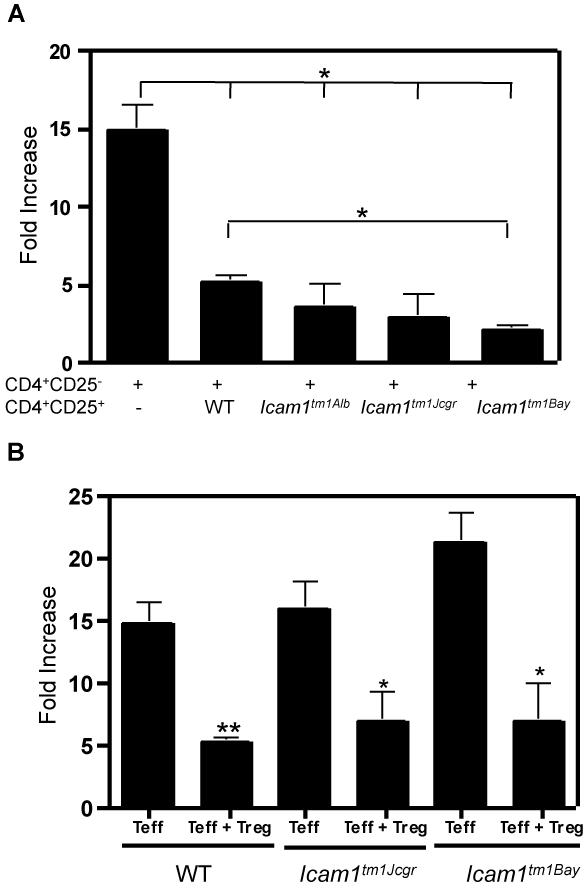Fig. 8.
Alterations in ICAM-1 isoform expression do not affect regulatory T cell function. In vitro suppression assays were performed as described in the Materials and Methods using wild type, Icam1tm1Alb, Icam1tm1Jcgr, or Icam1tm1Bay CD4+CD25− responder or CD4+CD25+ regulatory T cells. Cultures were stimulated with soluble anti-CD3 and anti-CD28 antibodies for 72 hours and were pulsed with 3H-thymidine for the last 18 hours. A, The results are shown as fold-increase over baseline controls for WT CD4+CD25− cells alone (n=6), control CD4+CD25− cells with wild type CD4+CD25+ cells (n=7), wild type CD4+CD25− cells with Icam1tm1Alb CD4+CD25+ cells (n=5), wild type CD4+CD25− cells with Icam1tm1Jcgr CD4+CD25+ cells (n=4), and wild type CD4+CD25− cells with Icam1tm1Bay CD4+CD25+ cells (n=4). B, wild type Treg cells are able to suppress proliferation of Icam1tm1Jcgr and Icam1tm1Bay CD4+CD25− T cells. The results shown are fold-increase over baseline controls for wild type CD4+CD25− cells alone (n=6), wild type CD4+CD25− cells with wild type CD4+CD25+ cells (n=7), Icam1tm1Jcgr CD4+CD25− cells alone (n=3), Icam1tm1Jcgr CD4+CD25− cells with wild type CD4+CD25+ cells (n=4), Icam1tm1Bay CD4+CD25− cells alone (n=4), Icam1tm1Bay CD4+CD25− cells with wild type CD4+CD25+ cells (n=4). Statistical analysis was performed using Anova (*, p≤0.1 and ***, p≤0.001).

